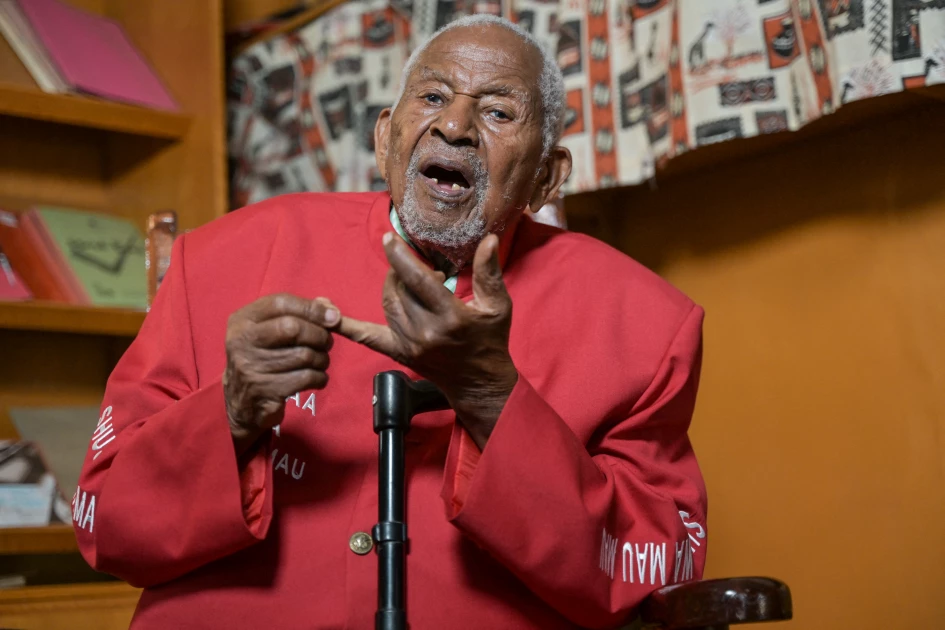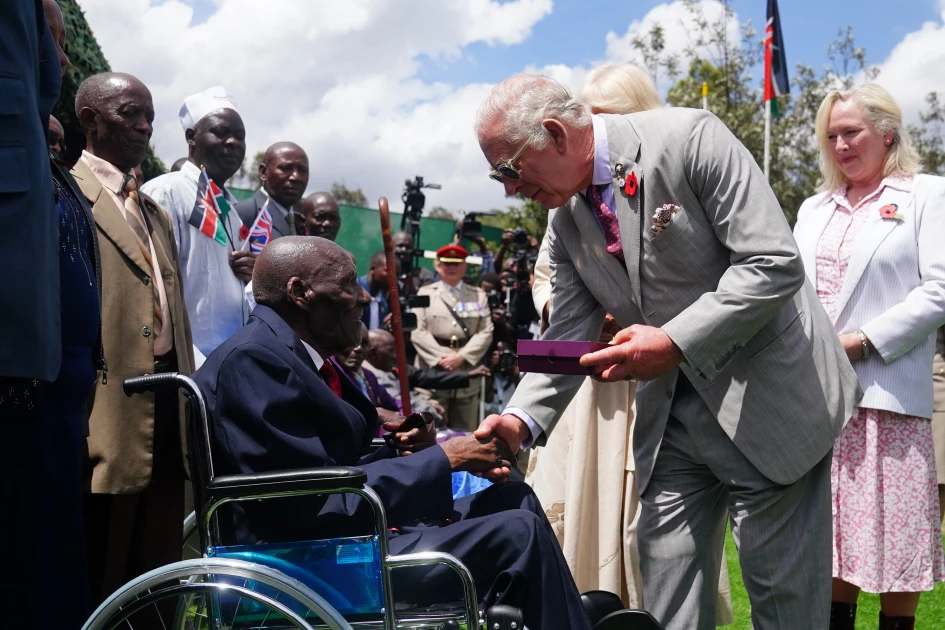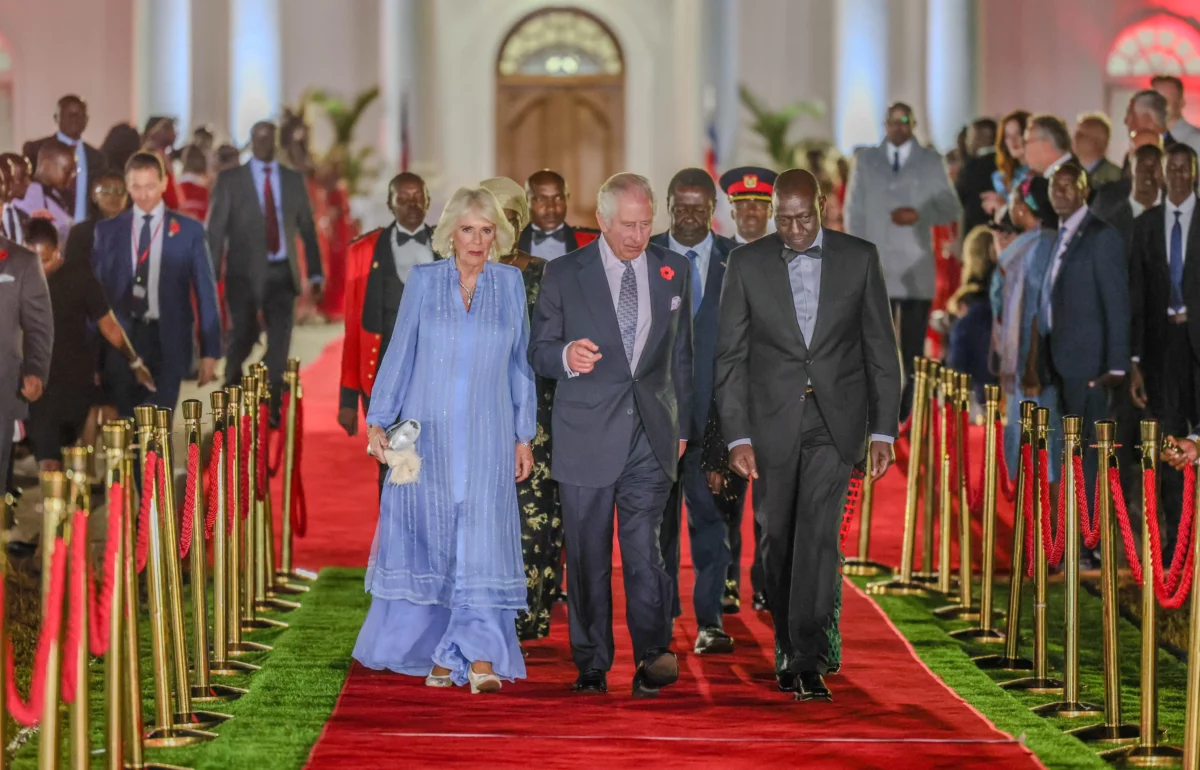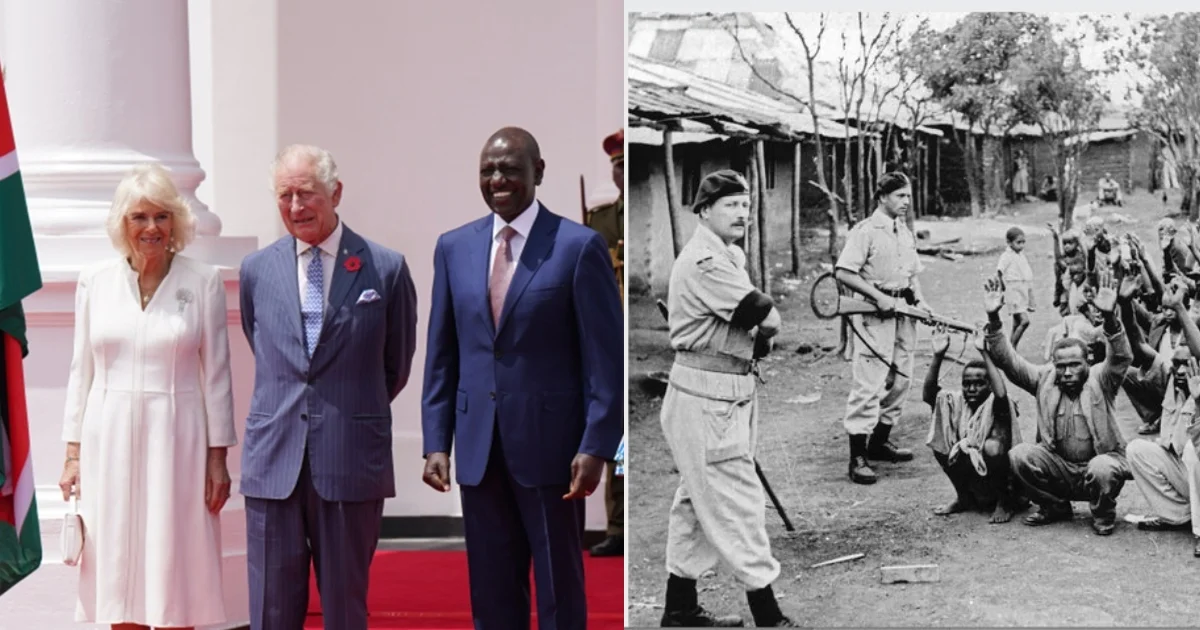The recent visit to Kenya by King Charles has brought up issues in Kenya’s past that were initially not open conversation.
A lot of voices in Kenya demanded an apology and compensation for the horrors the Kenyan people endured during colonialism even before King Charles III arrived. Freedom fighters and their families came out to demand some sort of reparations from the royal family. One such freedom fighter is Gitu Wa Kahengeri, an anti-colonial rebel who was imprisoned, tortured, and denied food in a British-run labour camp in Kenya more than 60 years ago. According to a report by Citizen Digital, Gitu says that he is still waiting for justice years down the line.

While working on this story, I came across a thread on X, formerly known as Twitter, by activist Boniface Mwangi that claims to outline the atrocities meted out to Kenyans by the British government during the colonial period. The issues highlighted in the thread are heavy, from the sexual assault to the parading of the Kenyans naked for humiliation.
Mothers and daughters were sometimes raped together in the same hut by white and black members of the security forces. At gunpoint, others were given the choice between death and rape. Margaret Nyaruai explained why many chose rape: “We felt that we would rather allow them to rape us then get killed, especially those who have small children depending on them.” Then when they were finished with us we had to go back to work, and if we didn’t fill our quotas we would be beaten some more or sent to the Home Guard post where we would be beaten and raped again.
Britain’s Gulag : The Brutal End of Empire in Kenya by Caroline Elkins
What the British did in Kenya, a thread ????, source: Britain’s Gulag : The Brutal End of Empire in Kenya by Caroline Elkins..
— The People’s Watchman (@bonifacemwangi) November 1, 2023
“PRESERVING KENYA FOR CIVILIZED WHITE PEOPLE”
First, the colonial government established African reserves, which were defined rural areas, eventually with… pic.twitter.com/gXrjqKLuxr
As Kenyans keep seeking apologies from the British government, an important question to ask is, is an apology really enough to atone for the brutality experienced by our forefathers in the quest for freedom? I asked the question to several young Kenyans and all of those who responded said that an apology was not enough for different reasons.

According to Akinyi Vane, an apology is not enough. She believes that if the British government wants to apologize to Kenyans, then they should do it publicly but they should also acknowledge and accept the wrongs that they did to Kenyans back then. She also says that the victims of colonial brutality should be duly compensated by the British government. Although she acknowledges that no amount of money would be enough to compensate for the evil meted out to Kenyans during the colonial period, she says that Kenyans ought to enjoy some benefits from the British government. “The UK needs to be an easily accessible country to its colonies, that would benefit us at large. Benefits like scholarships to those who want to study abroad and also invest in the infrastructure we have for better living,” she says.
Read Also:
The British Museum Seeks to Digitise Collection of Stolen Artefacts
Nicholas Odhiambo alias Klaus, on the other hand, believes that the calls for apologies from Kenyans are hypocritical. “As a nation, we have had 60 good years of independence. That should actually mean something. During this time, the British embassy and the UNHRC offices have been around. Why haven’t we, as a nation, made this much noise before?” he remarks. He argues that the country has neglected its own heroes and designated only a single day out of a year to celebrate them. It is important to have this conversation every day and not just when we hear that a monarch is visiting.
I acknowledge my history as a Kenyan and I am grateful for those who fought for my independence. Whatever happened during the colonial period was utterly awful and it left a scar on us as a constant reminder. We may never heal from the effects of colonialism if we don’t recognize those among us who experienced it.
Klaus Says.
The topic of the legacy of the empire was evidently very much on the King and Queen Camilla’s five-day state visit, despite the normal wining and dining, as well as visits to monuments and organizations. In his outpouring of remorse, King Charles mentioned the “abhorrent and unjustifiable acts of violence” that the British had carried out against Kenyans in their struggle for independence.

During a luncheon hosted in his honour, the monarch made the remarks in a speech. “The wrongdoings of the past are a cause of the greatest sorrow and the deepest regret. There were abhorrent and unjustifiable acts of violence committed against Kenyans as they waged, as you said at the United Nations, a painful struggle for independence and sovereignty – and for that, there can be no excuse. In coming back to Kenya, it matters greatly to me that I should deepen my own understanding of these wrongs, and that I meet some of those whose lives and communities were so grievously affected,” he said.
Subscribe to our YouTube channel Switch TV
Even if history’s wounds might never completely heal, reflection is prompted by the level of understanding and acknowledgement displayed during this state visit. More than merely expressing regret, the path to reconciliation requires a dedication to right historical wrongs, providing a window of opportunity for healing and reparations as well as a common vision for a future in which the legacy of colonialism is acknowledged and not sidestepped.
















